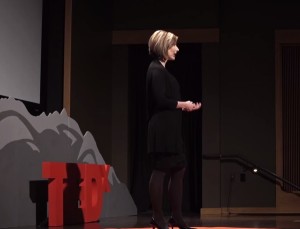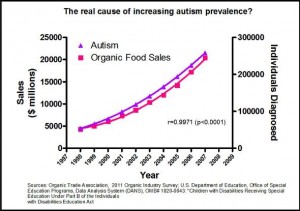Oct
09
2015
 An editorial in Nature Biotechnology titled, Standing Up for Science, takes direct aim at the problem of science communication in our society. (It’s a short article – read it.) It’s a wonderful editorial, and I completely agree with it. This should not come as a surprise to any regular readers here.
An editorial in Nature Biotechnology titled, Standing Up for Science, takes direct aim at the problem of science communication in our society. (It’s a short article – read it.) It’s a wonderful editorial, and I completely agree with it. This should not come as a surprise to any regular readers here.
The article focuses on the recent events involving US Right to Know using Freedom of Information Act (FOIA) requests to essentially harass public scientists and troll through their e-mails so that they can take lines out of context and use it for anti-GMO propaganda. This effort was funded in part by a $47,500 donation from the Organic Consumers Association. The irony of this was apparently completely lost on USRTK.
The main target (so far, this affair is likely not over) was Kevin Folta, a gifted and dedicated science communicator (he has been a guest on the SGU a couple of times and was a speaker at NECSS). The “smoking gun” revealed by USRTK was that Monsanto had donated $25,000 (that’s $22,500 less than USRTK got from Big Organic) to Kevin’s University for public outreach, funds which he used to pay for gas money and snacks when he traveled for public speaking engagements. As Nature points out:
Folta broke no laws. The Monsanto funds were a donation to his university’s Foundation outreach program. They were tied neither to him directly nor to his research. His conflict of interest disclosures were wholly compliant with his university’s rules. He never used industry funds for personal gain.
Continue Reading »
Jul
09
2015
New Zealand recently passed a law designed to outlaw cyberbullying and give victims a measure of protection. The intent of the bill good, and I agree that this problem may need some creative legislative solutions, but I don’t think this bill was well crafted. It further raises all the thorny issues of free speech.
The Telegraph reports:
The bill was introduced after a public outcry over the horrific “Roast Busters” scandal, in which a group of teenage boys from Auckland was accused of sexually assaulting drunk, under age girls and boasting about the acts on social media.
Public outcry is often a problematic motivation for new legislation. It motivates legislators to do something dramatic quickly, which does not lend itself to nuanced law. Of course this is a horrible crime and people should be outraged. The primary crime, however, was the sexual assault. Boasting about the crime later on social media rubbed salt in the wounds, but it would be a mistake to over-react to that aspect of the crime.
Continue Reading »
Jun
25
2015
 I have watched from the sidelines the recent controversy over the comments made by Nobel Laureate, Tim Hunt. Here is what sparked the controversy:
I have watched from the sidelines the recent controversy over the comments made by Nobel Laureate, Tim Hunt. Here is what sparked the controversy:
The British scientist told delegates at the World Conference of Science Journalists in South Korea that when women work alongside men in labs, three things happen: “you fall in love with them, they fall in love with you, and when you criticize them, they cry.” He then went on to suggest that perhaps the best way to solve this problem is to have sex-segregated labs.
Hunt was widely criticized for his comments, which were interpreted (quite reasonably) as sexist. Within days he was pressured to resign from his honorary post at University College London. In response to that others came to his defense, including 8 Nobel laurates and Richard Dawkins, who characterized the reaction as a “witch hunt.” Others, like Brian Cox, did not go that far but did say the response was “disproportionate.”
This has led to a round of criticizing those defending Tim Hunt. And now the Tim Hunt camp has responded further, saying that Hunt was taken out of context, that he followed up those words with, “Now seriously, women are needed in science,” indicating the whole thing was just a bad joke. That claim, however, is disputed, and there is no objective record to resolve the dispute.
Continue Reading »
Apr
07
2015
In November 2014 Rolling Stone magazine published an article called, “A Rape on Campus.” If you click on the link to that article today you are directed to another article on Rolling Stone: “A Rape on Campus,” What Went Wrong?
This one article may have triggered two important conversations in our society. The first was to push forward the conversation on the problem of rape on college campuses. This is a real and serious issue, but as is often the case when a new social issue comes to prominence the basic facts have not been fully vetted and worked through. There are many claims on all sides of the issue, and a lot of new data to sort through. For example, there is ongoing debate over the true incidence of rape on college campuses.
The article also unintentionally sparked a discussion of best journalistic practices. As the editor of Rolling Stone describes:
Last November, we published a story, ‘A Rape on Campus’ [RS 1223], that centered around a University of Virginia student’s horrifying account of her alleged gang rape at a campus fraternity house. Within days, commentators started to question the veracity of our narrative. Then, when The Washington Post uncovered details suggesting that the assault could not have taken place the way we described it, the truth of the story became a subject of national controversy.
Rolling Stone commissioned an independent journalistic investigation, which has now been published. The Columbia Report is a harsh indictment of the failures of the magazine, and a cautionary tale for all journalists.
So, what did go wrong? A New York Times editorial characterizes what went wrong as a failure of skepticism.
Continue Reading »
Mar
16
2015
On the SGU this week we interviewed Kevin Folta, who is a biotechnology scientist at the University of Florida. His specialty is strawberries – he is trying to identify which genes are responsible for the intense flavor of wild strawberry varieties. Some of this flavor was inadvertently lost over decades of cultivating strawberries to be big, attractive, and have a good shelf life. He sent me some of the wild varieties he is working with. They produce small (really small) unattractive strawberries that taste amazing. Ideally he would like to figure out how to combine the incredible flavor of some of the wild strawberries with the marketable cultivated varieties.
Kevin is also a science communicator. He does outreach to help the public understand his science, the science of plant genetics, which includes genetic modification. He is publicly funded and so all of his funding sources are fully disclosed. He has no funding from industry, no conflicts of interest.
However, because he is an outspoken critic of unscientific anti-GMO propaganda he has been targeted by the anti-GMO crowd. Their latest strategy is to go on a fishing expedition using freedom of information act (FOIA) requests. The anti-GMO lobby, of course, is not monolithic, and this is one group who is undertaking this approach – US Right to Know (funded by the Organic Consumers Association). They have issued FOIA requests to obtain all the e-mails of 14 senior biotech scientists.
Continue Reading »
Mar
03
2015
 In a recent TEDx talk, Sharyl Attkisson nicely demonstrates the deep problem with astroturfing, although part of her demonstration was inadvertent. The problem is actually deeper than she stated, because she herself has fallen victim to part of the deception.
In a recent TEDx talk, Sharyl Attkisson nicely demonstrates the deep problem with astroturfing, although part of her demonstration was inadvertent. The problem is actually deeper than she stated, because she herself has fallen victim to part of the deception.
Astroturfing is essentially fake grassroots activism. Companies and special interests create non-profits, Facebook pages, social media persona, write letters to the editor, and essentially exploit social and traditional media to create the false impression that there is a grassroots movement supporting some issue. The key to astroturfing is that they conceal who is truly behind these fronts.
Attkisson, a journalist for CBS news, points to several examples in which pharmaceutical companies, for example, secretly promote their drug and marginalize criticism. She correctly points out how campaigns of doubt and confusion can work, by generating so much controversy that the public loses confidence in the science (and in fact science itself) and throws the baby out with the bath water.
This is all part of the same phenomenon I discussed in yesterday’s post about Google ranking websites by their factual accuracy. There is power in information, and there is essentially a war going on over control of information, which increasingly is fought on the battleground of the internet and social media.
Continue Reading »
Feb
12
2015
In a recent blog post, Dilbert writer Scott Adams wrote:
What’s is science’s biggest fail of all time?
I nominate everything about diet and fitness.
Maybe science has the diet and fitness stuff mostly right by now. I hope so. But I thought the same thing twenty years ago and I was wrong.
From there he goes on what can charitably be called a rant against science, arguing that the public is justified in not trusting the findings of science because science has been wrong before. Adams’ criticisms, however, are based largely in his own misunderstanding of science.
He makes two major errors in his analysis. The first is to confuse mainstream media reporting of science with the science itself. The second is to have an incorrect image of how science progresses over time.
Continue Reading »
Dec
19
2014
An Australian based company called Universal Medicine (UM) has been criticized by various skeptical blogs and groups as being a new age alternative medicine cult. Looking through their website, this seems like a reasonable observation. (The term “cult” is fuzzy, but many of the features seem to be present.)
In response to this criticism, UM has apparently issued many complaints to Google, claiming defamation. According to the site Chilling Effect, Google has responded at least in some cases by removing the sites from Google searches, effectively censoring those websites.
Doubtful News was one of the sites censored by Google.
This type of action represents a serious threat to the skeptical mission. Part of that mission is consumer protection, and the primary method of activism is public analysis and criticism of dubious claims, products, services, and organizations. Essentially, we expose charlatans.
Charlatans, it turns out, don’t like to be exposed. They don’t like bad press.
Continue Reading »
Nov
18
2014
I was recently in a conversation with someone about the alleged threat that Muslims present to Western societies. I made the point that not all Muslims are radicals, and it’s not valid to condemn the entire group based upon the actions of their most radical members. They countered that “90%” of Muslims were radicals.
Obviously, they made this figure up on the spot for rhetorical effect. But this was their perception, shaped, very likely, by the type of news they generally consume.
In addition to the biasing effect that media can have on our perceptions of reality, there is a day-to-day subtle confirmation bias that colors our perceptions. It is very true that “believing is seeing” – we tend to notice, remember, and accept observations that seem to confirm (or can be interpreted to confirm) our internal model of reality. We tend to ignore or (more often) dismiss observations that seem to contradict our internal narrative. They are reinterpreted, or treated as “exceptions” (assuming the rule to which this new evidence would be an exception).
The good news is that today we have rapid access to objective factual information like never before. I love whipping out my smartphone and fact-checking in the middle of a conversation. This access to information should also have a humbling effect, and should motivate people to question the “facts” that they have rattling around in their brains. Don’t trust anything unless you have a recent and reliable reference.
Continue Reading »
Sep
30
2014
 It is no longer news that Dr. Oz has long ago abandoned any pretense to scientific rigor and is simply another scaremongering hawker of snake oil and nonsense. Still, it’s hard not to marvel when he sinks to a new low.
It is no longer news that Dr. Oz has long ago abandoned any pretense to scientific rigor and is simply another scaremongering hawker of snake oil and nonsense. Still, it’s hard not to marvel when he sinks to a new low.
On a recent show Oz’s target was genetically modified organisms (GMO). This is not new for Oz, he has hosted anti-GMO activists in the past, warning his audience about non-existent health risks.
This time around Oz and his guest are claiming that pesticides used with certain GMO varieties may cause autism. Why is it always autism? It’s likely at least partly due to the fact that awareness of autism has been increasing in the last 2 decades, creating the false impression that autism itself is increasing. This leads to numerous false correlations (most famously with vaccines) and the assumption of cause and effect (often to support a preexisting bias). As you can see from the graph, however, the rise in autism diagnoses tightly correlates with increased organic food sales – but I guess you have to cherry pick the correlation you want.
The narrative that Oz spun for his audience was this: GMO is tied to pesticide use. Those pesticides are hazardous to your health, and specifically might cause autism. Organic food is pesticide free, and going organic can actually cure autism.
Every link in that chain of argument is misleading or patently wrong.
Continue Reading »
 An editorial in Nature Biotechnology titled, Standing Up for Science, takes direct aim at the problem of science communication in our society. (It’s a short article – read it.) It’s a wonderful editorial, and I completely agree with it. This should not come as a surprise to any regular readers here.
An editorial in Nature Biotechnology titled, Standing Up for Science, takes direct aim at the problem of science communication in our society. (It’s a short article – read it.) It’s a wonderful editorial, and I completely agree with it. This should not come as a surprise to any regular readers here.








